Bolton begins role as US National Security Adviser amid numerous crises
US President Donald Trump's new National Security Adviser John Bolton faces an immediate crisis as he begins his new job following the alleged chemical attack in Syria.
Bolton, who replaced HR McMaster on Monday, is known for his hawkish views and general belief that the US should use military power preemptively, including in Syria.
But despite Trump's own hawkish instincts, the president’s views on conflicts like the one in Syria have been inconsistent, even contradictory.
Just last week, he was calling for the immediate withdrawal of US troops from Syria, apparently disagreeing with his own Pentagon. Yet in one of his tweets on Sunday, Trump accused the Syrian government of launching a chemical attack near the capital Damascus, saying there will be a “big price to pay.”
Syria has strongly rejected the accusations and an initial assessment by the United States has not determined whether the reported chemical attack was carried out by Syrian government forces.
The alleged chemical attack on Saturday in the militant-held town of Douma in the Eastern Ghouta region left dozens dead and drew international condemnation from various countries and international bodies.
Bolton and the Trump administration will also be confronting other challenges, including a super power confrontation with China, a deadline on the Iran nuclear agreement and Trump's summit with North Korea's leader Kim Jong-un.
Bolton's critics fear that he will provoke Trump’s wilder impulses and lead the United States into dangerous global confrontations.
Alongside Mike Pompeo, Trump's nominee for secretary of state, Bolton is seen as part of a potential war cabinet that could encourage Trump’s most hawkish tendencies.
"I don't expect him to be a very tempering influence," said Matthew Waxman, who saw Bolton up close as a staffer on President George W. Bush's National Security Council.
"I would describe him as being extremely hawkish, especially with regard to military instruments, but also coldly calculating and rational. He is sort of like [former vice president] Dick Cheney in a lot of ways."
One critic, Carl Ford Jr., a former assistant secretary of state for intelligence and research, called him a "kiss-up, kick-down sort of guy."
VIDEO | Press TV's news headlines
Iranian satellites launched into space as private sector debuts in space industry
VIDEO | Iran, Azerbaijan conduct joint maritime rescue operations
VIDEO | Yemen’s Red Sea divide: Naval forces block Israeli-linked ships in strategic ‘parting of the water’
VIDEO | Southern Gaza: Israel’s facade for famine and suffering
VIDEO | IOF hampering humanitarian aid
VIDEO | Sharmahd: Justice Done
Iran repeatedly warned Israel not to test its will: FM


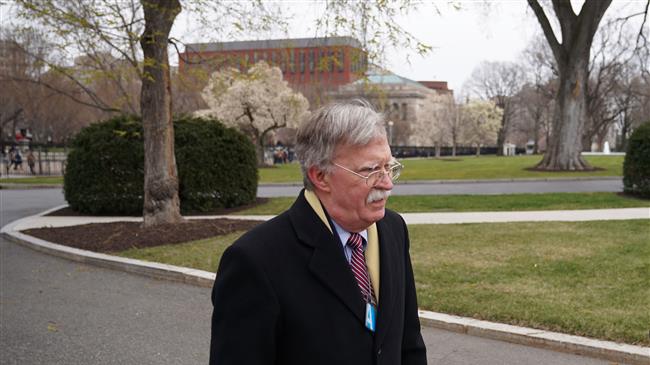

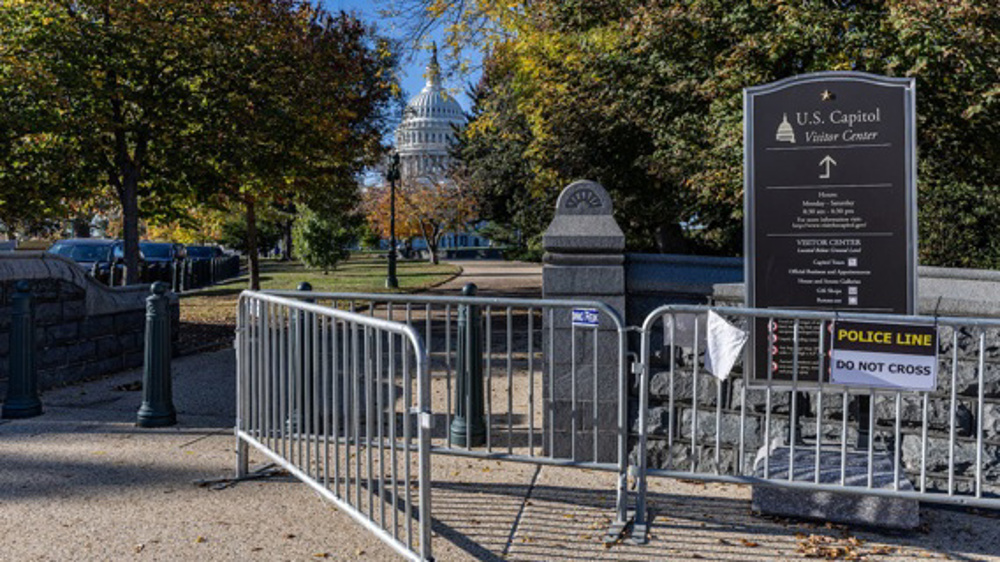
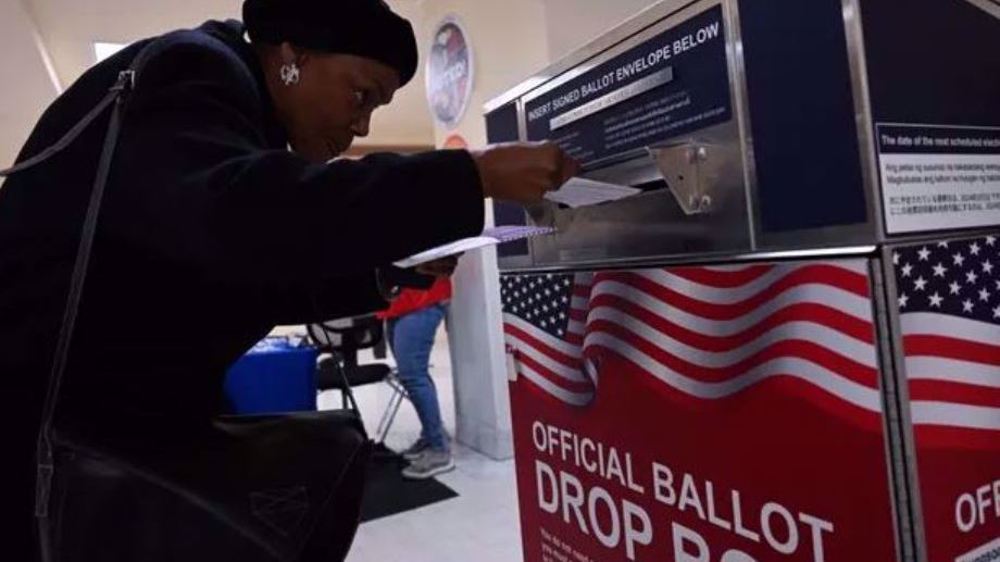




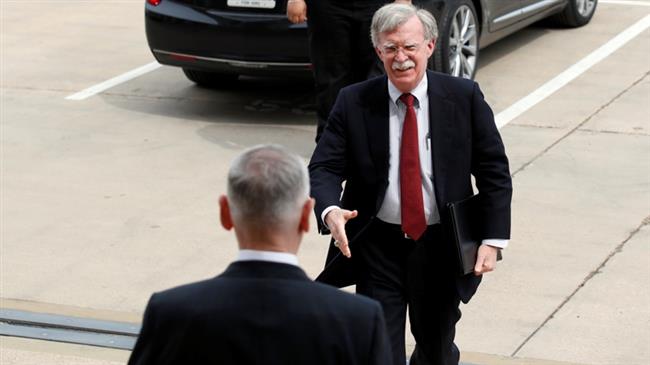
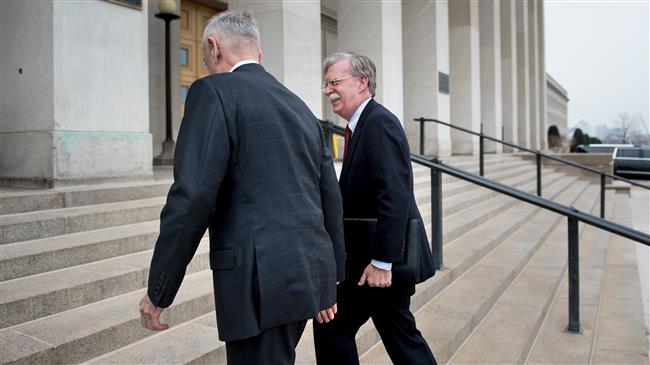
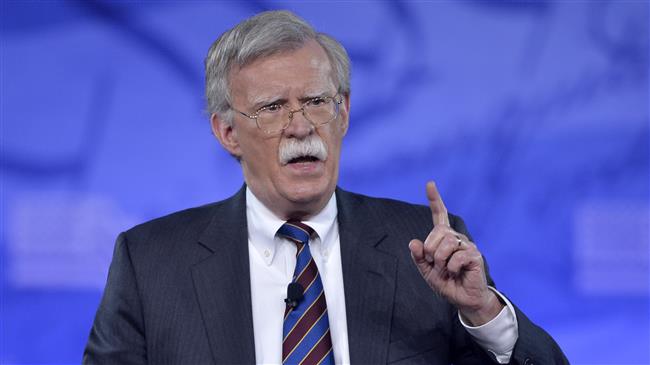
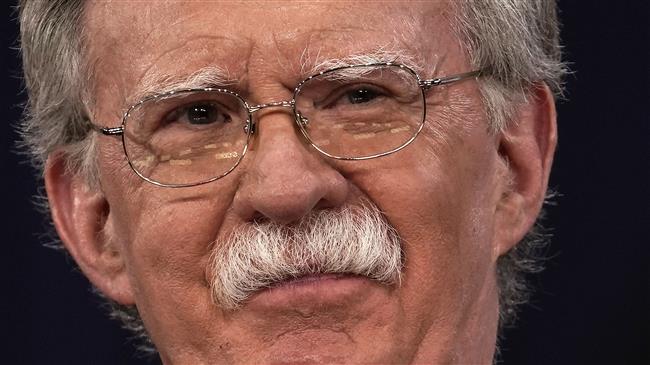
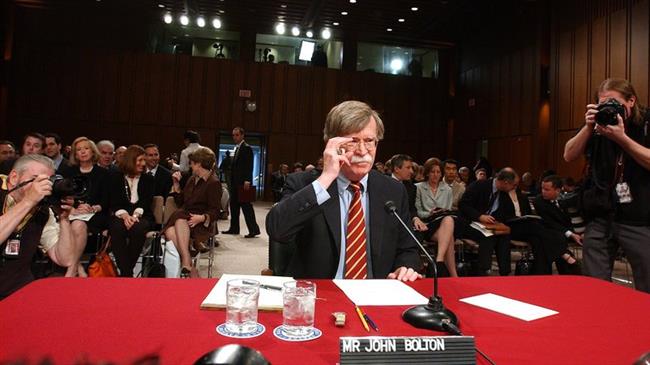

 This makes it easy to access the Press TV website
This makes it easy to access the Press TV website